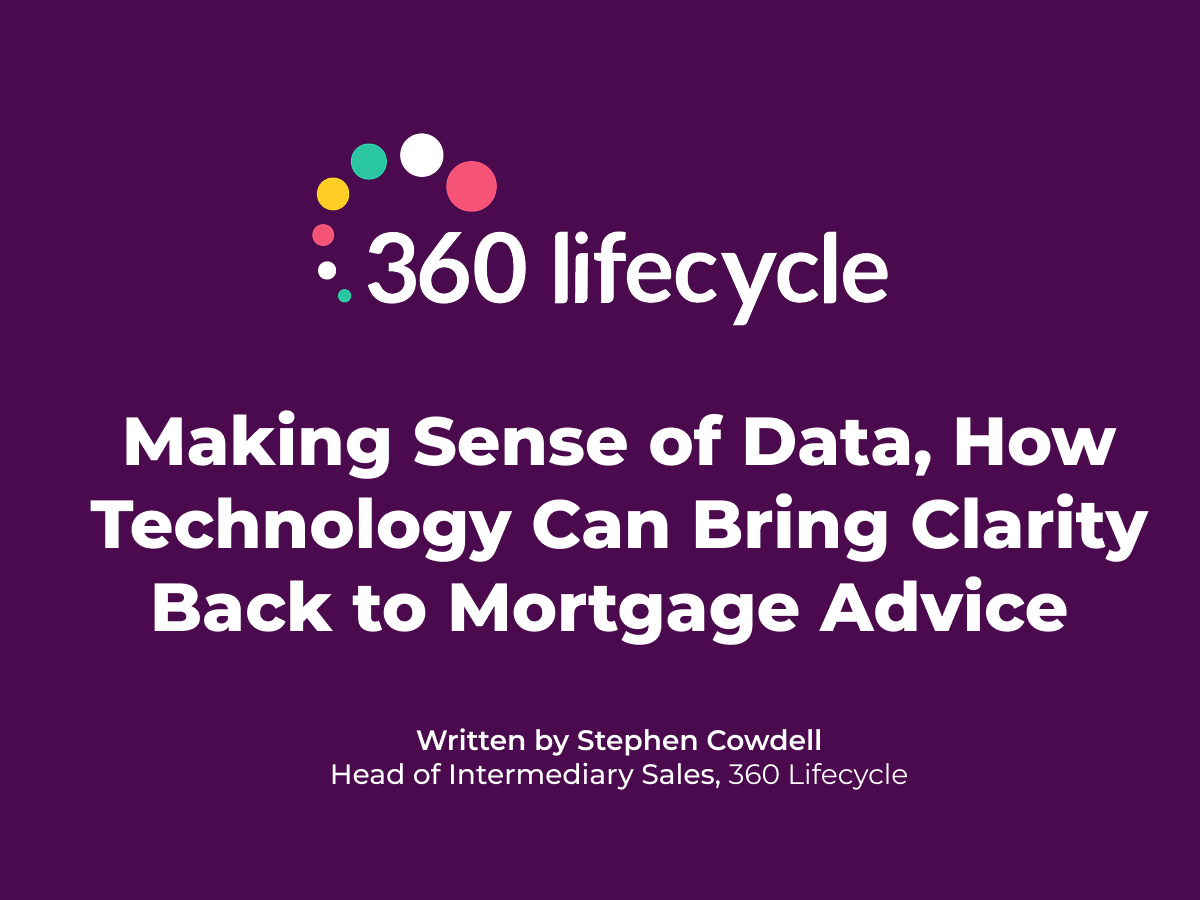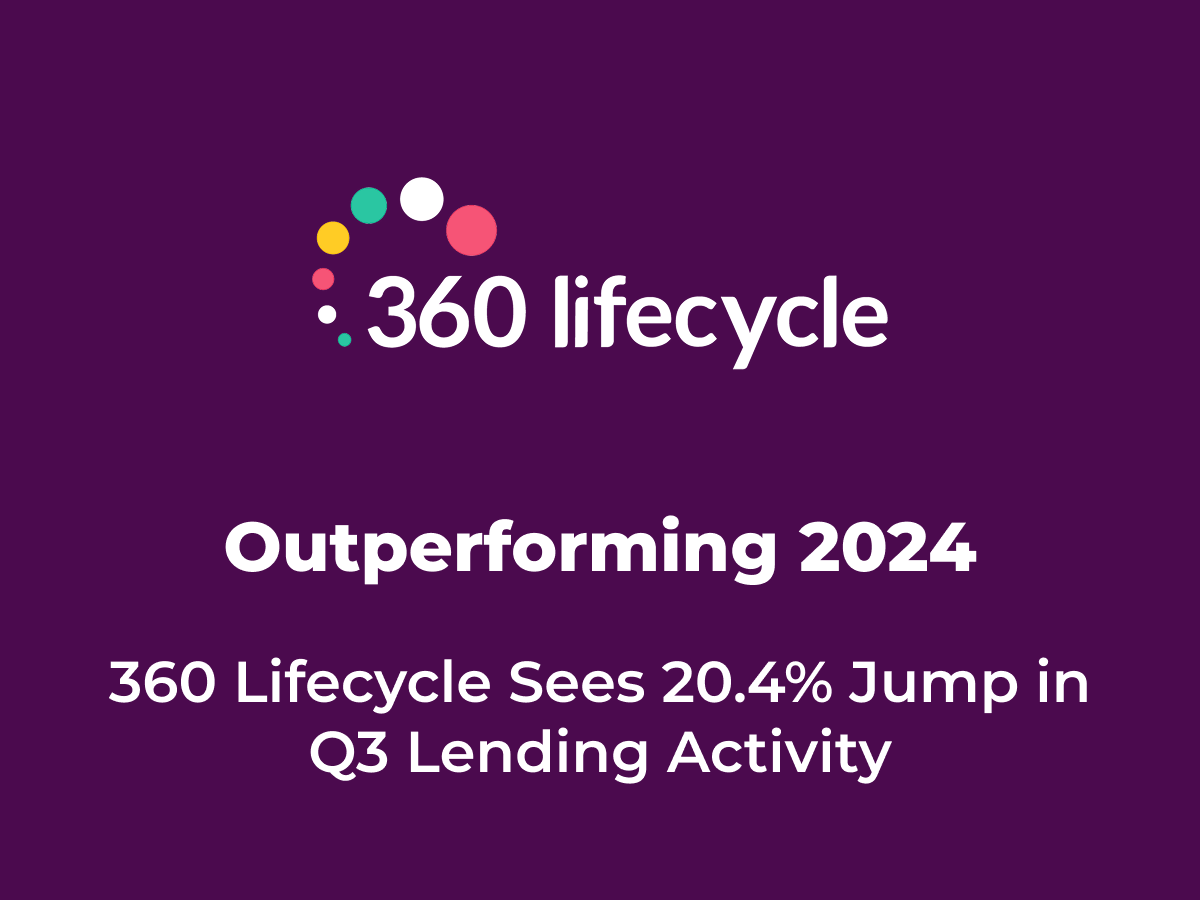
Talking Tech in 2024
By Stephen Cowdell, Head of Intermediary Sales at 360 Lifecycle
It has been a very challenging year for brokers and advisers, with interest rates going up and the cost-of-living having a major impact on potential borrowers’ ability to get a mortgage.
What is good to see, though, is that advisers are really starting to think quite carefully about their data, and how they can use it to their advantage in these challenging market conditions.
Advisers are looking at their data within 360 Lifecycle and asking for reports and data to enable them to spot sales opportunities. For example, reports that highlight clients that took out a mortgage, but not protection or GI. This data will enable the firm to generate revenue organically and make the most of the opportunities sat within their client bank.
Challenges on the horizon
Looking ahead to next year, I’m not confident of an instant recovery or significant rate reductions – it’s going to take longer. The Bank of England are projecting little recovery until 2025 and then we may see rates fall to a more favourable level.
A big challenge for advisers in 2024 and beyond will be client affordability. There is going to be about 500,000 borrowers coming off their low fixed rates, and if rates are still high, that’s going to be a huge challenge for them personally, but also a significant challenge for advisers.
This is where exhaustive data analysis comes in. Firms should be analysing their data now, understanding their risks as a business going into 2024. They should have a clear understanding of how many clients they will have coming off their fixed rates, what that means for both them and their customers and how best to deal with the challenges.
Recovery itself is out of the industry’s hands. What we all learned in the pandemic is that it’s impossible to truly predict how things are going to look in a year’s time. It’s essential for advice firms to be well equipped to handle market conditions.
I was an adviser in 2008, during the market crash, and we saw protection sales increase. When you have a downturn in the economy, consumers tend to look after their number one asset – themselves. Making sure that, should the worst happen, they’ve still got an income, with income protection plans, as well as making sure liabilities and the family are protected. It’s clear that protection will be a big focus for the next year, and brokers will be looking to find those gaps where clients might be amenable to those conversations.
If you can go into 2024 as an adviser, knowing the risks associated with your client bank, and having a back-up plan that uses data, that will mean – if rates still aren’t looking great – at least you’ve got other business avenues to explore. The only way to do that is by being thorough with data analysis, which we facilitate, making sure every business line and opportunities are explored.
The other big trend that we’re focusing on heavily at the moment is pre-qualification of new and existing clients. My view is that, as and when we start to see rates drop, advisers and brokers will see a huge influx of enquiries. Not all of these enquires will be proceedable and this could be due to adverse, excessive debt or circumstances picked up over the last 5 years due to the pandemic and the challenges associated with that.
It’s going to be important to be able to pre-qualify clients quickly and easily. That’s why we are working on ways to help advisers with this. . Once completed by the customer, the FactFind can then be converted into a full mortgage and protection FactFind, without the need to re-key the data. We hope this will enable advisers and brokers to easily identify opportunities that will lead to a transaction.
Quick on the uptake
This is an industry that has been slow to take up new tech in the past. Pre-Covid, there was even an element of fear around new developments, with brokers and advisers not seeing value in new technology or simply not having the time to learn about it.
However, lockdown showed us that the general public is more tech-savvy than the industry had previously thought. Most consumers are now more familiar with online technology including Client Portals. Anyone going through the process of a home purchase will need to use a portal when engaging with their solicitor. We have certainly seen an increase in uptake in the usage of our Client Portal at 360 Lifecycle and have over 191,000 Client Portal users. Our data shows that a customer using our Client Portal with their adviser, is 24% more likely to conduct repeat business with the adviser.
In addition, there are demands from consumers to be able to engage with their adviser at a time that is convenient to them. So, if a customer, perhaps a Doctor or Nurse, wants to complete a FactFind when they finish their night shift at 2am, it’s important for the adviser to be able to facilitate the interaction or risk losing out to their competition.
This doesn’t mean giving up on the human touch. 90% of mortgages sold last year were via an intermediary – there’s absolute quality in the advice that’s being given, and that will remain moving forward. There’s a large element of trust that consumers place with their advisers and brokers, and that will be a continuing trend.
Customer engagement is another hot trend. Advisers and brokers are looking to move away from the transactional ‘one night stand’ approach and are focusing on regular customer engagement. Arranging a 5-year fixed mortgage and only re-engaging with the customer a few months before the fixed rate ends, needs to be a thing of the past. We deal with a lot of enquires at 360 Lifecycle, where our advisers and brokers want to keep in regular monthly or quarterly contact with their client bank. Using email, SMS and Client Portal campaigns to offer additional services, as well as sending targeted communications to clients approaching rate expiry, will be essential to retain business.




